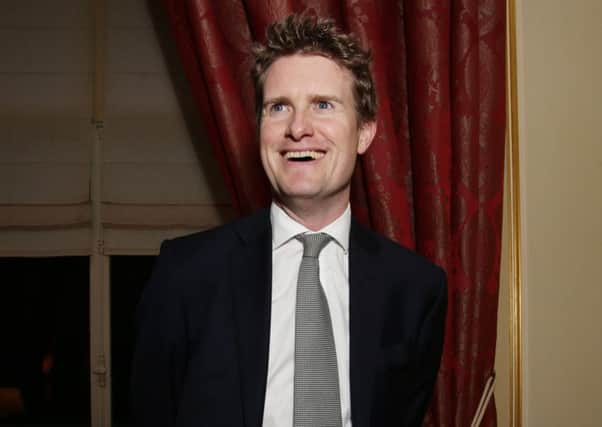Labour MP Tristram Hunt resigns to become a director of art useum


Elected in 2010, the Stoke-on-Trent Central MP enjoyed a rapid rise, becoming a shadow minister within three years and a member of Labour’s top team six months later.
A respected historian, he was a regular on television screens before entering parliament, presenting programmes on Elgar And Empire, Isaac Newton and the English Civil War.
Advertisement
Hide AdAdvertisement
Hide AdMr Hunt’s ease in front of the cameras made him one of Labour’s more assured performers on the broadcast rounds.
As shadow education secretary, he campaigned against the government’s relaxation of rules on the training teachers must have.
But he landed in hot water when he appeared to suggest that nuns in Catholic schools did not make good teachers.
After Ed Miliband quit as Labour leader, Mr Hunt said he was “interested in the leadership”.
But his privileged upbringing – he is the son of Lord Hunt of Chesterton – and career in academia led some to question if he was the right person to reach out to voters.
He later ruled himself out of the contest saying he did not have enough support to make it on to the ballot paper.
After Jeremy Corbyn’s shock win, Mr Hunt refused to serve on the front bench and became an outspoken critic of the new leader.
He set up the Labour for the Common Good group with Chuka Umunna, which was said to have been dubbed “the resistance” in party circles.
Advertisement
Hide AdAdvertisement
Hide AdA first class degree in history from the University of Cambridge and a PhD on civil thought in Britain 1820-1860 laid the ground for his academic career.
But his links to the Labour Party were never far away, with a stint working on the 1997 general election campaign followed by three years as a special adviser to then science minister Lord Sainsbury.
Announcing he was quitting politics to become director of the Victoria & Albert Museum, Mr Hunt said his time in parliament had been “both deeply rewarding and intensely frustrating” and told of the “harrowing effects of poverty and inequality” he had seen during his work as an MP.
The politician added: “The frustration, of course, came with the inability to address those factors and implement our policy programme following our defeat in 2015 – and, more broadly, about how the Labour Party should respond to the social, cultural and economic forces which have rocked mainstream social democratic and socialist parties from India to Greece to America.”